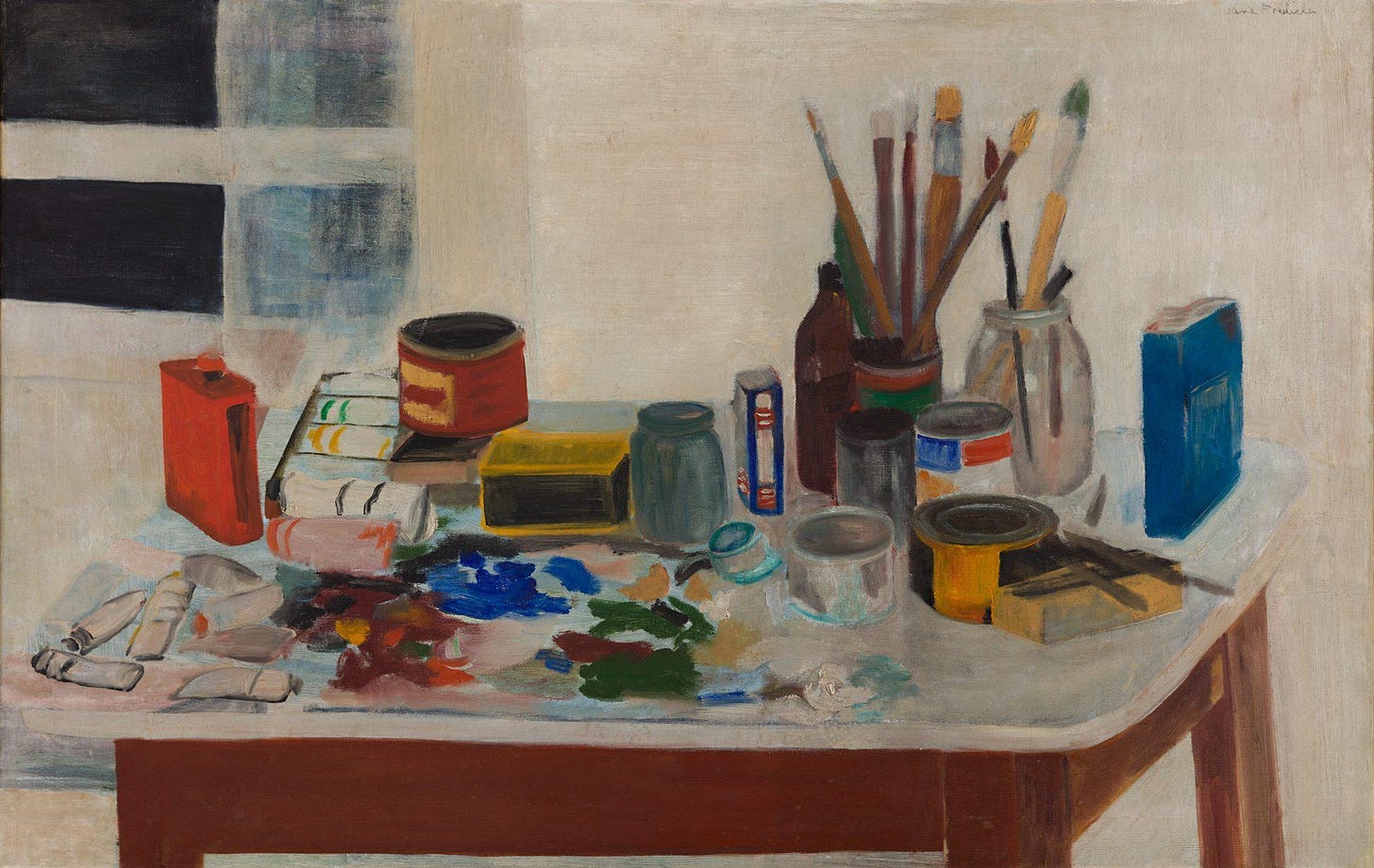responsibility
Jane Freilicher, The Painting Table, 1954
Over time you come to understand a person you love as a complete story. How the facts of their daily existence—when they wake up, where they get coffee, the way they constantly lose their keys, the place they get their hair cut—connects with who they were at four, six, 12. The way their face and body have affected the way they move through the world. Who’s loved them and who’s left them. The little moments that hurt them. For me, so many love stories have started with a second of appraisal, an impression that became a conversation and then a feeling. And then weeks later I learned about the Lego set they got for Christmas when they were eight and they became a real person to me. The problem is, it’s hard to learn about somebody else’s story without getting altering it. Once someone loves you you become responsible for them.
In this post I wrote about how I’m addicted to responsibility. I guess I still have more to say on the topic: I’ve been wondering about the exact nature of it, how to quantify it, how we can best honor it. For instance, it seems clear that in a friendship, your responsibility is to be reasonably responsive, make time for your friend, and support them when you can. If you’re very close to them, the responsibilities are significantly more, and if you’re not close, the responsibilities are less. But let’s say someone wants to stop being friends with me. Is it okay for them to do that? Obviously they can do whatever they want, but it’s clearly more understandable if we had a huge fight or they’ve been a bad friend to me. If we were ostensibly very close and had a harmonious relationship, it might be irresponsible (“mean”) of them to suddenly ditch me without warning.
Keep reading with a 7-day free trial
Subscribe to bookbear express to keep reading this post and get 7 days of free access to the full post archives.


